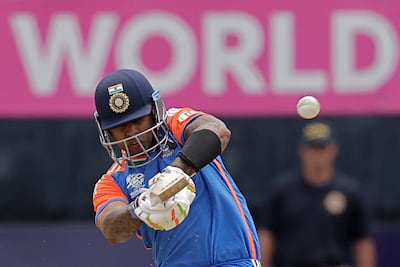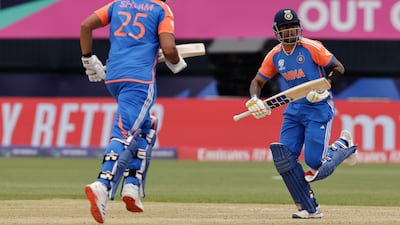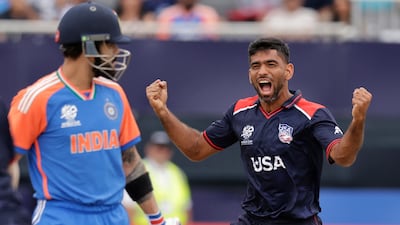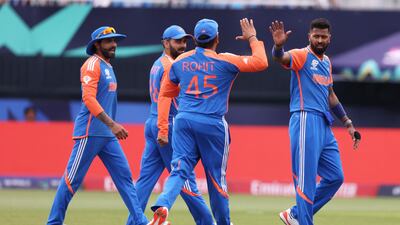Let’s put this out there straight away: cricket’s five-run penalty law is a good thing.
It was first introduced to cover a variety of ills. Player misbehaviour. Sharp practice. Ball tampering. Lots of stuff that is worth clamping down on.
Then, more recently, an addendum was added. In December 2023, the International Cricket Council (ICC) announced the trial of a stop clock.
It was designed to restrict the amount of time taken between overs, mandating that the bowling team need to be ready to bowl the first ball of their next over within 60 seconds of the previous one.
“Failure to do so for the third time in an innings, following two warnings, will result in a five-run penalty being imposed against the fielding team,” says the playing condition.
Again, a good thing. Anything to speed up play in a game that suffers when it ambles is most welcome.
But the timing of it being invoked for the first time ruined what might have been another great story in the recent history of USA cricket, and potentially the biggest upset in T20 World Cup history.
At the start of the 16th over of their group game, India needed 35 runs and were in a tricky position on another testing batting pitch. Shivam Dube was struggling to score, and Suryakumar Yadav was playing within himself, hampered by a hand injury suffered early in his innings.
“It feels like it is time to target an over here and take some of the pressure off,” Steve Smith said on commentary.
But by the time the next ball was bowled, India had a five-run head start. The two umpires, Australians Paul Reiffel and Sam Nogajski, briefly conferred and agreed the USA had taken too long about setting themselves up for the over.
Reiffel called over Aaron Jones, the stand-in captain of the USA, and explained the ruling. As he was doing so, Dinesh Karthik was airily assessing the run of play in the commentary box, and praising the United States bowlers.
There was no debate about or forecalling of the penalty. It took everybody by surprise. “I’m not 100 per cent sure what has taken place,” said Ebony Rainford-Brent on commentary, as Reiffel tapped his shoulder to signal the penalty.
There was no sulking by the USA players. Jones shot one killer look at the bowler of that particular over, Jasdeep Singh, but it had been a cumulative effort. Other than that, they were straight back to the job of trying to defend their total.
Neither did they complain about it post-match. It was all on them, Stuart Law, the United States coach, said.
“Players know the rule, but it’s something that if you haven’t played with it for a long time, it’s very difficult to have it embedded in your brain,” Law said.
“So, the information coming from the umpires was, they were given two clear warnings, then it’s up to the players to respond. And we didn’t respond fast enough, we didn’t do it well enough, and that’s something we can address.”

The effect it has was to get the equation down to a run a ball for India: 30 from 30. That felt a good deal easier than it had done previously, but in truth the favourites were always comfortable.
They were only three wickets down at the time of the penalty. The chase might have been getting nervy, and the pitch at the pop-up ground in Long Island characteristically testing.
But they had plenty of scope to take risks. Hardik Pandya was next in. Ravindra Jadeja was after that. Really, they couldn’t have been stressing too much.
And then, anyway, Suryakumar Yadav played arguably the most sumptuous shot of the tournament so far, and the controversy was rendered academic.

Shadley van Schalkwyk, the USA seamer, hit the wicket not too far from the six- to-eight-metre length that has proved so challenging in New York. Yadav proceeded to executive the most classical lofted drive, clearing the rope at long off, and all the pressure dissipated.
To compound the advantage, he then played a trademark scoop for four off the next delivery, and that was the end of that. India went on to win with seven wickets with ten balls to spare.
“I don’t think it affected the outcome of the game,” Law said of the penalty. “Five runs wasn't going to affect the outcome of the game so I don't think it rattled [the players].
“I thought we stuck to our guns, we fought hard, we fought to the death. I thought we showed some fantastic character against one of the best teams in the world.”













